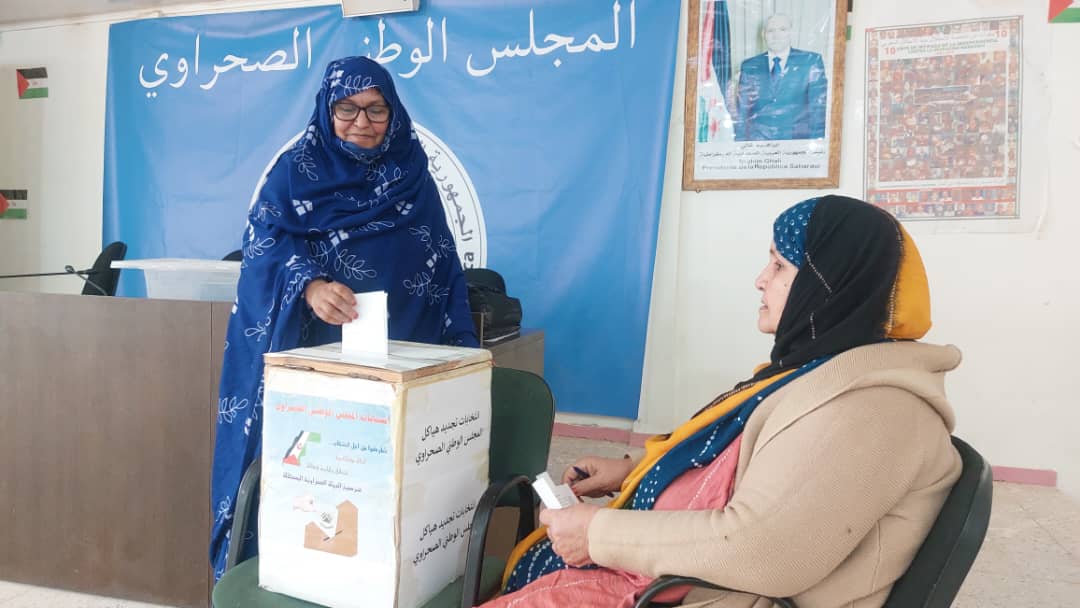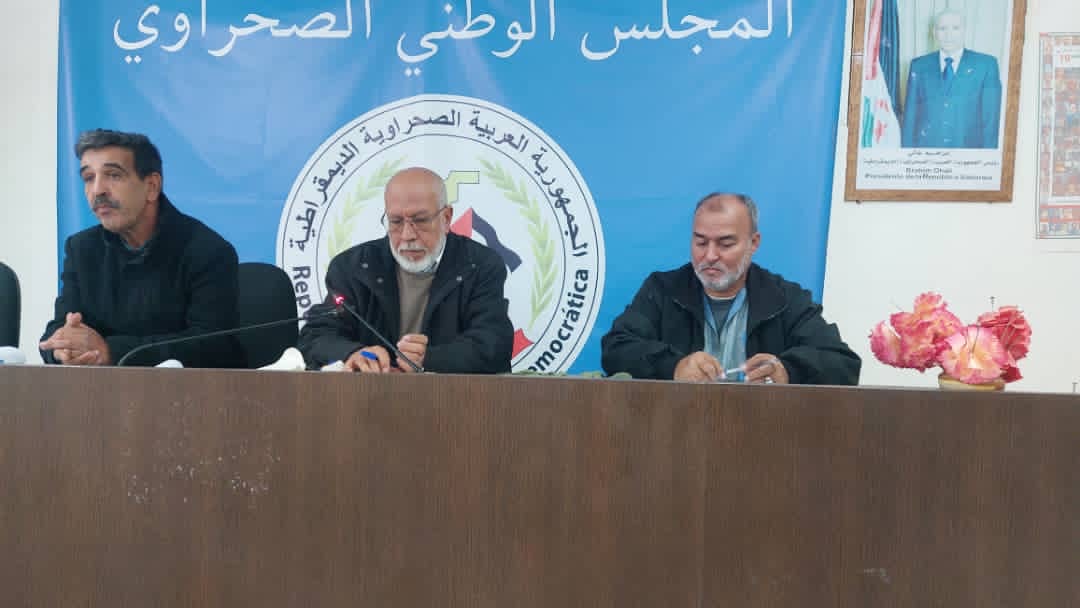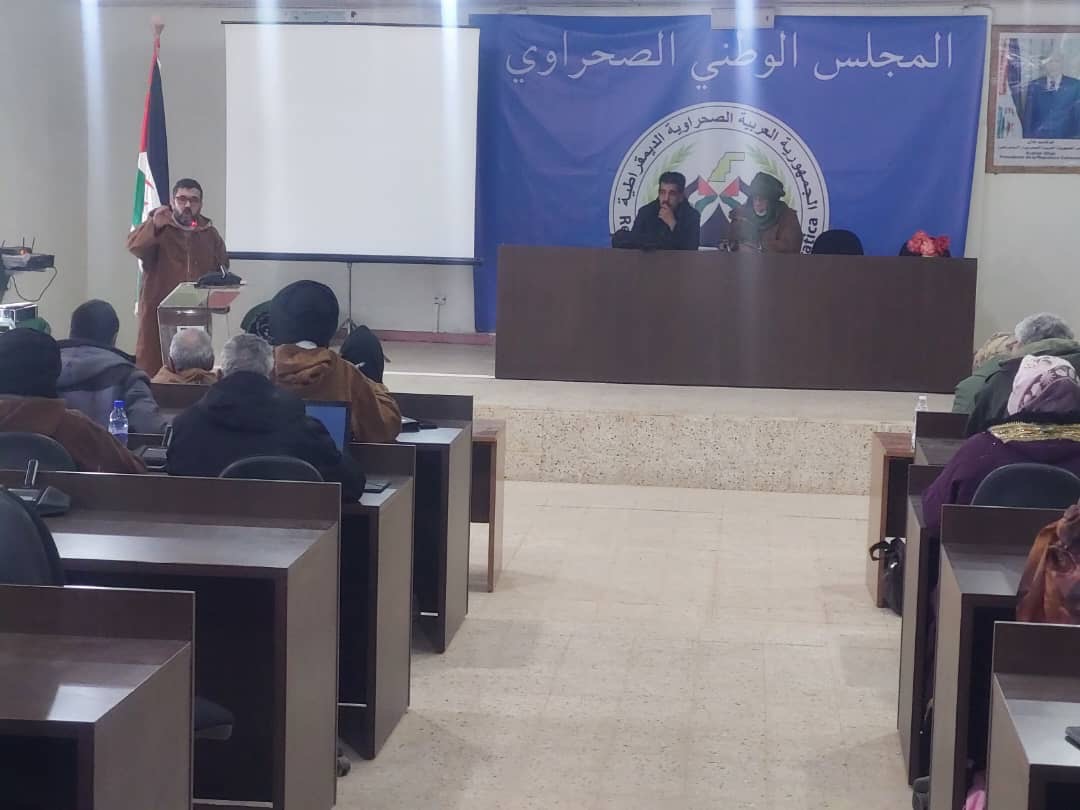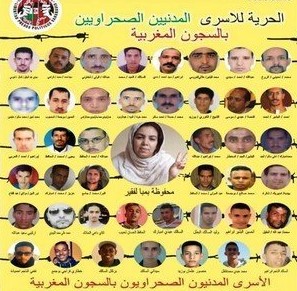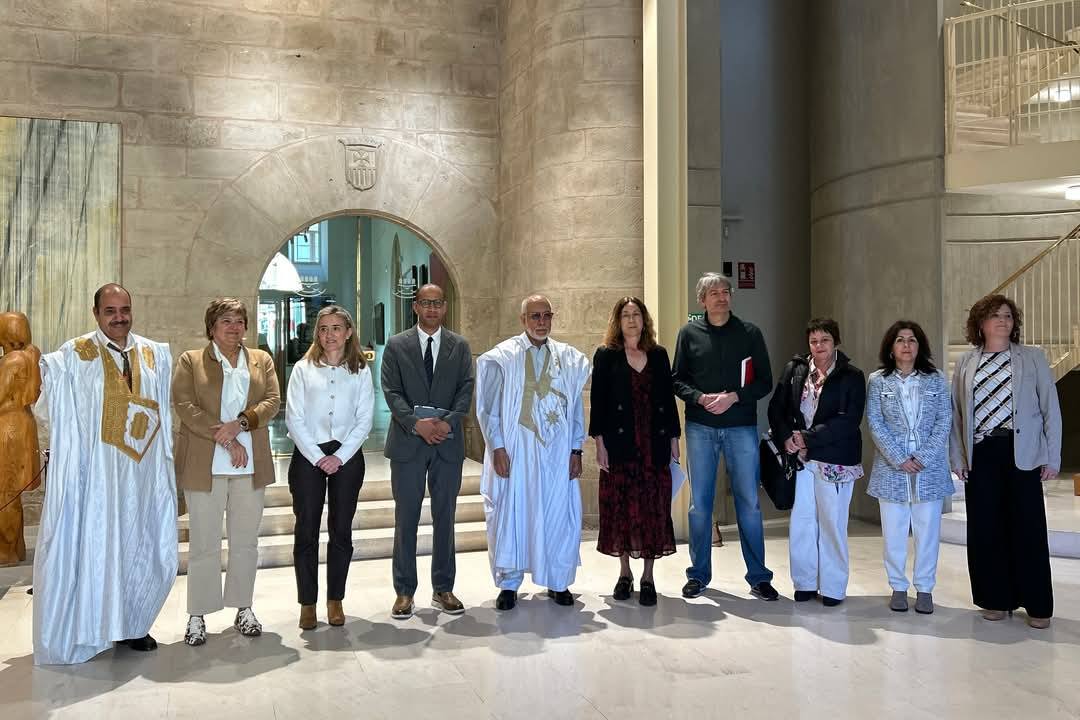
La Rioja (Logroño), April 24, 2025 (SPS) – The Parliament of La Rioja yesterday hosted an institutional meeting as part of the "Peace and Freedom for Western Sahara" session, welcoming Hamma Salama, President of the Sahrawi National Council (Parliament).
The meeting, reflecting La Rioja’s historic commitment to the Sahrawi cause, was attended by representatives from the region’s major political parties, including the Popular Party (PP), the Spanish Socialist Workers' Party (PSOE), and United Left (IU), as well as the Polisario Front’s delegate in La Rioja, Mohamed Labat, and the Sahrawi delegation’s head of Political Affairs at the national level, Salamu Hamudi Bachri.
The event highlighted La Rioja’s ongoing collaboration in defending the rights of the Sahrawi people, as well as the need to unite efforts among all political parties to ensure the inalienable right of the Sahrawi people to self-determination and independence is realized.
As part of this visit, Hamma Salama also met with representatives of La Rioja’s solidarity movement to discuss cooperation in various fields, with a special focus on political advocacy. During the meeting, representatives of La Rioja’s civil society stressed the importance of continuing to push for compliance with international law, advocating for the right to self-determination of the Sahrawi people, as established by United Nations resolutions. They also reaffirmed that the Spanish people’s commitment to the Sahrawi cause remains unshakable, renewing their support for a struggle that has faced decades of political and humanitarian challenges.
For his part, Hamma Salama, President of the Sahrawi National Council, took the opportunity to express the gratitude of the entire Sahrawi people for La Rioja’s historic solidarity. He emphasized the value of La Rioja’s support as a fundamental pillar in keeping the Sahrawi cause alive, at a time when the decolonization process of Western Sahara remains stalled due to Morocco’s military occupation and the illegal positions of certain countries that hinder a definitive solution.

